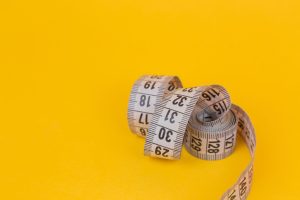Working on the front lines of digital transformation, the SDR skills sales representatives need today are constantly evolving.
Even so, there are still some evergreen skills that define what it means to be a sales rep.
Like any profession, SDR skill sets are a combination of both hard and soft skills.
As technology develops, what qualified as marketable hard skills in the past are less relevant today. But as fundamental as some soft skills are to the profession, SDRs should still demonstrate some technical knowledge.
This article will explore seven of the most essential SDR skills your sales reps should have.
Each skill will feature three detailed examples of the skill followed by a brief explanation.
Whether you’re recruiting SDRs or developing your career as one, this list will outline and cover the most important skills for SDRs.
Hard SDR skills
Let’s begin with the hard skills.
These skills are often teachable and refer to knowledge that can be quantitatively measured.
They are the tangible skills you pick up with experience, education, or both.
To start, two of the fundamental building blocks in outbound sales development are email and cold calling. To save time, we won’t go into too much detail about either.
Nevertheless, the boilerplate expectation of most SDRs is that they can make a high volume of calls and send emails.
The following skills relate to the tools and activities of the trade.
1. Experience with sales enablement tools
Sales enablement tools are the software, platforms, and technology that give SDRs the data and support they need to move leads through the pipeline.
We’ll list just the top three sales enablement tools that specifically help sales reps conduct outreach.
An SDR with prior knowledge of how to use these is already at an advantage.
LinkedIn is inarguably the #1 social network when it comes to finding and building relationships with prospects. There is an entire sales methodology dedicated to using it efficiently.
With so many people active on social media, it’s easy to see why social selling is the future.
Outreach.io
Outreach.io defines itself as a “sales execution platform” that lets SDRs manage their pipelines with a suite of features to organize and measure their cadences of outreach.
As an industry leader in sales software Outreach comes highly recommended for its practicality and value.
Close
Though it has CRM in the name of its official product, Close also gives sales teams a powerful built-in calling and email platform.
It combines the seamless data management of a CRM with the necessary tools and analytics for effective outreach.
There’s some crossover in functionality between these three platforms, but experience with any of them is a plus.
2. Experience with CRMs
Customer relationship management (CRM) tools are the central hub for organizing leads and customers.
While they offer support across all departments of a company, they hold a special place in the heart of salespeople.
Managing the data of an organization’s customer base is a gargantuan task. CRMs help streamline the administrative processes of identifying and moving prospects through the funnel.
Below are three of the most popular CRMs for SDRs on the market.
Salesforce and Hubspot
Salesforce and Hubspot get the top spots for their namesake alone. Both are widely recognized as two of the best CRMs your money can buy. It’s a learned skill for an SDR to know their way around either of these platforms, especially Salesforce.
Pipedrive
Pipedrive deserves special mention because it’s built with salespeople in mind.
Taking after the style of a Kanban board, it simplifies the SDR workflow with accessibility options like data visualizations and a drag-and-drop interface.
CRM tools often form the base of a tech stack. Savy SDRs would do well to at least be familiar with them.
3. Prospecting skills
One of the most critical SDR skills is prospecting.
Outbound sales development requires a stringent process of selecting the right leads who fit your ideal customer profile (ICP). You can’t begin outreach unless you know who it is you’ll be reaching out to.
An SDR’s ability to prospect can be tested by the quality of leads they find.
How can you identify an SDR with good prospecting skills?
Research
Naturally, research is the key to good prospecting. Sales reps need to know who is a good fit for their solution based on the research they do.
A university or advanced degree is one way to check for research skills since they are such an essential part of higher education.
LinkedIn Sales Navigator
LinkedIn Sales Navigator is a powerful, paid version of LinkedIn designed for sales professionals. With more advanced search capabilities and alerts, it is an indispensable part of the prospecting cycle.
SDRs should at least know how to use it.
Excel & Google Sheets
Excel is almost synonymous with white-collar work.
These days SDRs should have some knowledge of Excel (or its Google alternative, Sheets). Working within spreadsheets comes in handy whenever an SDR needs to organize and share their list of prospects with the team.
Research abilities and experience with any of the tools listed above can go a long way to demonstrating an SDR’s prospecting skills.
4. Copywriting skills
There’s still a time and place for cold calling, but the majority of the modern-day SDR’s workflow will consist of writing emails or LinkedIn messages.
While not copywriting in the purest sense, many sales reps are still tasked with writing to influence an action.
The classic example is a cold email where the goal is to elicit a reply through a call-to-action (CTA).
That said, there are several ways to identify an SDR’s ability to communicate through writing.
Creativity
The battle for attention in a prospect’s inbox requires creative thinking. One of the top priorities for any sales rep is setting their message apart from the rest.
A technically gifted writer is understood, but a creative writer is remembered.
Creativity as a skill extends beyond writing as well. A creative SDR will find and adopt new outbound strategies for their campaigns.
Attention to detail
Speaking of which, a creatively skilled SDR is probably detail-oriented. Attention to detail is another highly-valued skill for SDRs who need to understand the intricate and changing needs of their buyer.
Sales development is a game of inches where careful analysis can be the difference between a swift rejection or an invitation to continue the conversation.
SDRs adept at copywriting are ones who have a sharp eye for phrasing and matching the tone of the prospect they’re writing to.
A/B testing
Finally, A/B testing messaging is an underrated skill used by SDRs to single out phrasing or subject lines that convert. A/B testing is an integral part of successful copywriting.
An SDR who regularly A/B tests the copy in their outreach knows how to build a winning formula.
Soft SDR skills
While it’s important to have some experience with the day-to-day software of an SDR, the less tangible soft skills are just as if not more valuable.
Digital transformation has changed the means of communication, but knowing how to stay organized, empathetic, and motivated are still at the heart of sales.
In the end, sales development is people-oriented work.
5. Organizational skills
SDRs have to be premier multitaskers.
Managing cadences, setting reminders to follow up, and drafting messaging are just a part of an SDR’s day.
They also have to map out the KPIs they need to hit to reach their goal.
In a nutshell: the most successful SDRs are the most organized.
Time management
With so many responsibilities to manage at once, SDRs are required to manage their time effectively.
They need to maintain a balance of consistent outreach and research.
The masters of sales development will tell you how they approach their workday systemically, blocking off enough time to dial, write, and stay on top of the latest sales trends.
Additionally, many sales reps also reserve time to create content for their social profiles and engage with interested prospects.
Goal setting
Although sales goals often depend on a specific client’s needs and resources, a sales rep who sets personal goals for self-improvement is invaluable.
Generally speaking, the soft skill of goal setting and committing to benchmarks you set for yourself is one of the best ways to learn fast.
This is especially true in the competitive world of sales.
Strategic planning
B2B sales development is a long game, with some sales cycles lasting 6+ months or more.
For SDRs to stay on top of warm leads or nurture cold ones, they need to plan well in advance how their cadence of touches will look months down the road.
This strategic foresight and ability to think ahead are the secret to maintaining long-term meaningful relationships with prospects.
6. Interpersonal skills
Otherwise known as people skills, interpersonal skills might be the most relevant to the work of an SDR.
With access to so many channels, it’s easier than ever to contact someone today.
But the abundance of social platforms and messaging services has led to overkill where SDRs have abused these channels with impersonal, mass outreach.
Buyers today want to be heard and understood.
Emotional intelligence is still the bedrock of effective communication.
Active Listening
Ultimately, an SDR is reaching out to help solve a problem. Problem-solving can only be achieved through focused, active listening.
Not only is active listening necessary to better understand a prospect’s unique needs, but it’s also foundational to healthy relationships.
Self-awareness
One half of emotional intelligence is empathizing with the emotions of others. The other half is understanding your own.
Self-awareness is the ability to read a message you send and ask yourself: “How would I respond to this message?”
The soft skill of being self-aware also facilitates growth. A conscious SDR is not only empathetic but a quick learner from their own mistakes.
Curiosity
A good listener is curious.
To stay atop the list of a prospect’s priorities, it helps to be genuinely interested in their problems and how you can work together to solve them.
Also, a curious SDR will take more time in their research, ask better questions, and stay up-to-date with industry best practices.
7. Persistence skills
Sometimes referred to as grit, persistence is among the most integral soft skills an SDR can have.
Let’s be honest: sales can be hard work that demands a short memory when it comes to rejection.
It can help to alter how you approach rejection as a necessary failure to learn, but it’s not easy.
As a soft skill, it’s difficult to measure, but persistence is paramount to success in sales.
Confidence
Picking up the phone to cold call a prospect takes confidence. Handling objections takes confidence. Even building rapport with prospects takes confidence that you know what you’re talking about and can communicate clearly.
So many of an SDR’s responsibilities require at least a bit of confidence.
Thankfully, confidence can be learned and it has benefits that extend outside of work.
Motivation
Persistent people know how to stay motivated.
As you can see, many of these soft skills are related to others. A self-aware SDR knows that nobody is 100% motivated all the time, so they manage their time effectively to perform when they know they’re at their best.
Breaking down workloads into manageable time slots to avoid overworking comes from knowing how to stay motivated.
Resilience
Resilient SDRs understand how to overcome the challenges of sales development.
They also bounce back quickly and understand how to cope with the stress of the job.
Being resilient is a dynamic process that combines adaptability and an open mind – two other equally important personality traits of a successful SDR.
At Sellerate, we screen our candidates and continually train our sales reps for these SDR skills.
If you’re interested in generating more revenue with one of our teams, contact us today.




